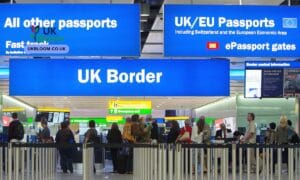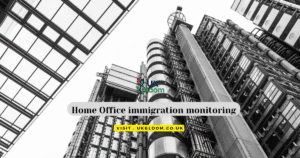A New Era of UK-EU Trade Deal: Key Highlights of the Landmark Deal
In a landmark announcement, Prime Minister Keir Starmer has confirmed the UK-EU Trade Deal as a transformative agreement with the European Union, marking a pivotal shift in post-Brexit relations. This comprehensive deal addresses critical challenges in trade, security, energy, and mobility while reaffirming the UK’s sovereignty. Below, we break down the multifaceted components of this agreement and its implications for businesses, consumers, and national prosperity.
Streamlining Trade: The SPS Agreement and Its Economic Impact
Central to the deal is the Sanitary and Phytosanitary (SPS) Agreement, designed to eliminate bureaucratic hurdles for agrifood trade. By removing routine checks on animal and plant products, the UK and EU will restore seamless movement of goods across borders, including between Great Britain and Northern Ireland. This measure directly addresses the 21% decline in UK agrifood exports to the EU since Brexit, reviving sectors like meat processing, enabling British producers to resume sales of products such as sausages and burgers to EU markets.
- Economic Boost: Projections indicate the SPS measures alone could inject £9 billion into the UK economy by 2040.
- Consumer Benefits: Reduced logistical delays and costs are expected to lower supermarket prices and expand product variety.
- Business Certainty: Unlike previous temporary fixes, this agreement has no expiration date, offering long-term stability.
Table of Contents
Energy Security and Emissions: Linking Carbon Markets
The UK and EU have agreed to integrate their Emissions Trading Systems (ETS), a strategic move to align climate goals and shield businesses from dual carbon pricing. Without this linkage, UK exporters faced a looming £800 million annual levy under the EU’s Carbon Border Adjustment Mechanism (CBAM), set to take effect in 2026.
- Cost Savings: Avoids redundant carbon taxes, protecting industries like steel and cement.
- Environmental Synergy: Strengthens cross-border collaboration to meet net-zero targets.
Revitalizing British Steel and Coastal Communities
A bespoke arrangement for UK steel exempts exporters from restrictive EU tariffs, saving the sector £25 million annually. Concurrently, a £360 million investment package targets modernization of the UK fishing fleet, coastal infrastructure, and workforce training.
- Fishing Access: The 12-year fishing accord maintains current EU catch limits in British waters, ensuring stability for coastal economies.
- Export Growth: Simplified SPS rules reduce costs for seafood exporters, enhancing global competitiveness.
Enhanced Security Cooperation: Data Sharing and Defence Partnerships
For the first time, the UK will gain access to EU facial recognition databases, supplementing existing exchanges of DNA, fingerprints, and vehicle data. This integration accelerates cross-border criminal investigations, particularly for serious offenses like human trafficking and terrorism.
Additionally, the Security and Defence Partnership enables UK firms to bid for contracts under the EU’s €150 billion Security Action for Europe (SAFE) fund, fostering innovation in cybersecurity and defense technology.
- Job Creation: Participation in SAFE is expected to support thousands of high-skilled roles in the UK defence sector.
Border Modernization: eGates and Pet Travel Reforms
British travelers will benefit from expanded access to eGates at EU airports, reducing wait times significantly. Pet owners also gain from the reintroduction of EU pet passports, eliminating the need for costly animal health certificates per trip.
- Tourism Boost: Simplified travel procedures may increase UK-EU tourism, benefiting airlines and hospitality sectors.
Youth Mobility and Migration Controls
Negotiations are underway for a Youth Experience Scheme, mirroring Australia’s working holiday visas, to allow limited-term work and travel opportunities for young Britons and EU citizens. However, the Prime Minister emphasized that reducing net migration remains a priority, with reinforced cooperation on curbing illegal Channel crossings and streamlining deportation processes.
- Balanced Approach: The scheme will have strict caps and time limits to align with broader immigration goals.
Sovereignty Preserved: Red Lines Upheld
The agreement explicitly rejects any return to the single market, customs union, or freedom of movement, adhering to the government’s manifesto commitments. This ensures the UK retains full control over its laws, borders, and trade policies while fostering pragmatic EU collaboration.
Conclusion: A Strategic Recalibration of UK-EU Relations
Prime Minister Starmer’s deal represents a pragmatic reset, prioritizing economic growth, security, and consumer benefits without compromising sovereignty. By resolving longstanding friction points—from agrifood trade to carbon pricing—the agreement positions the UK as a proactive global partner while addressing domestic priorities like cost-of-living pressures and job creation.
As detailed negotiations continue, we will monitor implementation across sectors and provide timely updates. For further insights, explore our dedicated coverage of Brexit’s evolving impact on the UK economy and international relations.
[Internal Link: Brexit: Five Years On – Progress and Challenges]
External Link: Full Text of the UK-EU Strategic Partnership Agreement






